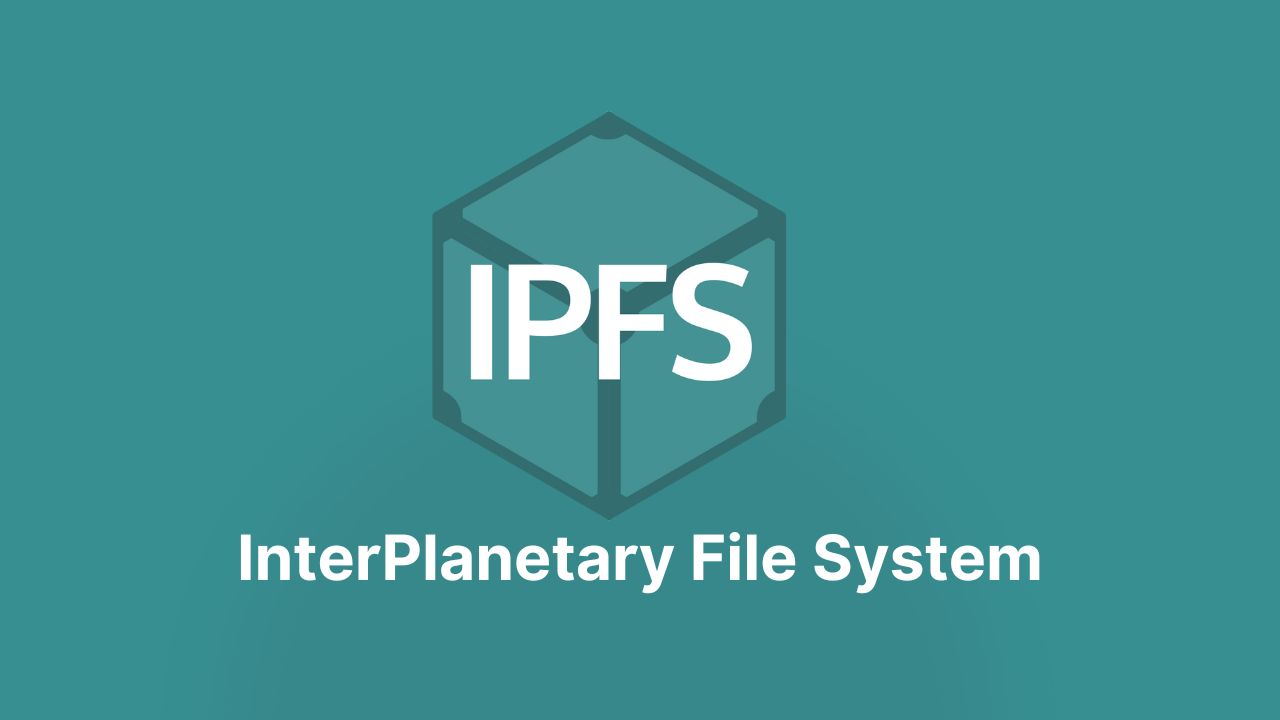InterPlanetary File System, commonly known as IPFS, is a protocol and peer-to-peer network designed to create a more efficient and decentralized method of storing and accessing information on the web.
Unlike traditional location-based web, IPFS organizes data based on its content, assigning them a unique fingerprint called CID (Content ID). This means that instead of relying on centralized servers, information is distributed across a network of nodes, allowing faster access, resistance to censorship, and greater efficiency in data storage and retrieval. In summary, IPFS represents an evolution towards a more decentralized web, where information is shared efficiently and resiliently across a global network of users.

How did IPFS come to be?
IPFS, the InterPlanetary File System, was conceived by Juan Benet, an entrepreneur and computer scientist, as a solution to address the limitations and challenges associated with the storage and distribution model of data in the traditional web.
Juan Benet founded Protocol Labs in 2014 with the vision of building open-source protocols to improve how information is stored and shared in the digital age. IPFS emerged as one of the flagship projects of Protocol Labs.
The motivation behind the creation of IPFS was to address fundamental problems in the architecture of the conventional web. The traditional web relies heavily on a server-client model, where data is centralized on specific servers. This can lead to issues such as single points of failure, censorship, and significant dependence on centralized infrastructure.
With IPFS, Juan Benet proposed a radically different approach: a distributed and decentralized file system based on blockchain technology and the idea of content addressability through a unique hash (CID). By organizing information in this way, IPFS aimed to improve efficiency, resistance to censorship, and speed of data retrieval compared to traditional methods.
Since its inception, IPFS has evolved and gained recognition in the technology and blockchain community as a promising technology for building a more resilient and decentralized web. Its continuous development has taken place with contributions from developers worldwide, and the project has influenced initiatives related to decentralizing the web and improving online storage infrastructure.
How does IPFS work?
IPFS (InterPlanetary File System) operates using a decentralized, node-based approach to store and retrieve information. Here is an overview of how it works:
- Content Identification (CID):
- Every piece of information in IPFS is identified by a unique hash called CID (Content ID). This CID is derived from the content itself, meaning that two identical datasets will have the same CID, providing an efficient way to access and verify information.
- Content Distribution:
- When a user adds a file to IPFS, the system breaks the file into smaller blocks.
- Each block is identified with its unique CID.
- These blocks are distributed across the IPFS network through a Distributed Hash Table (DHT)-based routing process, connecting nodes based on CIDs.
- Peer Nodes:
- Nodes in the IPFS network can act as both clients and servers simultaneously. Each node stores some data blocks and can request missing blocks from other nodes.
- Content Retrieval:
- When a user wants to access a file, the CID of the file is used to locate nodes storing the corresponding blocks.
- Nodes retrieve the blocks and deliver them to the user, allowing the reconstruction of the original file.
- Cache and Persistence:
- IPFS implements a caching mechanism where nodes temporarily hold blocks in memory, improving efficiency by reducing the need to repeatedly fetch the same blocks.
- Additionally, nodes can choose to persistently store specific blocks on disk to enhance long-term availability.
- Decentralization and Resistance:
- Because data is distributed across multiple nodes in the network, IPFS is resistant to censorship and single points of failure. There is no single point of failure, and the network can recover even if some nodes are disconnected.

IPFS Use Cases
- Decentralized Content Storage and Distribution:
- IPFS is used for decentralized storage and distribution of content. Files are broken into blocks and distributed across the IPFS network, enhancing content resilience and availability.
- Decentralized Websites (DWeb):
- IPFS is ideal for building decentralized websites (DWeb) by allowing web files to be stored and served in a distributed manner. This reduces dependence on centralized servers and improves resistance to censorship.
- Sharing and Collaborating on Content:
- IPFS facilitates collaboration and file sharing among users. Since each file has a unique CID, users can access shared files without relying on a central server.
- Decentralized Applications (DApps):
- DApps can use IPFS to store data in a decentralized manner rather than relying on centralized servers. This contributes to data resilience and integrity in decentralized applications.
- Permanent Data Storage:
- IPFS can be used for permanent data storage. Files stored on the IPFS network are distributed among nodes, helping preserve data integrity and accessibility over time.
- Data Versioning:
- Because each change in a file generates a new CID, IPFS facilitates data versioning. Users can efficiently access and verify previous file versions.
- Applications in Disconnected or Limited Connectivity Networks:
- IPFS is useful in environments where internet connectivity is limited or intermittent. Local IPFS nodes can store and serve content, enabling access even in adverse network conditions.
- Storage of Data in the Internet of Things (IoT):
- IPFS can be used to store and distribute data generated by IoT devices in a decentralized manner, providing greater efficiency and resilience.
- Authenticated and Immutable File Systems:
- Due to the nature of unique CIDs and the decentralized structure, IPFS can be used to create immutable and authenticated file systems, where file integrity can be efficiently verified.
Blockchain Projects Using IPFS
- Filecoin:
- Filecoin is a project that utilizes IPFS to create a decentralized marketplace for cloud storage. Users can sell and buy storage space using the FIL cryptocurrency. IPFS acts as the underlying system for data storage.
- Ethereum Swarm:
- Ethereum Swarm is part of the Ethereum ecosystem and focuses on providing decentralized storage for the Ethereum blockchain. Swarm uses IPFS as one of its storage options to enable efficient data distribution.
- Arweave:
- Arweave is a blockchain platform that uses IPFS to address the issue of data permanence on the web. Arweave decentralizes data storage on the IPFS network, ensuring long-term information permanence.
- Decentraland:
- Decentraland, an Ethereum-based virtual reality project, uses IPFS to store content such as images and 3D files. This allows users to access and load content directly from the IPFS network.
- Aragon:
- Aragon, a platform for creating and managing decentralized organizations (DAOs), uses IPFS to store documents and files related to DAOs. This ensures the availability and resilience of information associated with decisions made on the platform.
Advantages of IPFS in 2023:
- Decentralization:
- IPFS offers a decentralized model for storing and distributing content, eliminating dependence on centralized servers and providing greater resistance and redundancy.
- Network Efficiency:
- By using DHT-based routing (Distributed Hash Table), IPFS can facilitate efficient content distribution across the network, reducing latency and improving data access speed.
- Permanent Storage:
- The IPFS structure, with its unique CID system and decentralization, contributes to data permanence over time, avoiding issues associated with data loss or unauthorized alteration.
- Censorship Resistance:
- Due to its distributed nature, IPFS is resistant to censorship as there is no single point of control. This can be beneficial in environments where censorship is a concern.
- Integration with Blockchain:
- IPFS integrates well with many blockchains, and projects like Filecoin use IPFS to manage decentralized data storage.
Disadvantages of IPFS in 2023:
- Complete Adoption:
- While it has gained traction, IPFS has not been universally adopted across all corners of the web. Full adoption may take time due to the need for changes in existing infrastructure.
- Usability Complexity:
- For non-technical users, IPFS may seem complex compared to traditional storage solutions. Mass adoption may depend on more user-friendly interfaces.
- Resource Consumption:
- Running an IPFS node can consume significant resources, especially in terms of storage and bandwidth. This could be a hurdle for devices with limited resources.
- Security:
- Although IPFS provides censorship resistance, data security may depend on the specific implementation and node configuration. Lack of understanding or incorrect configuration could pose security risks.
- Scalability Challenges:
- As IPFS grows, scalability challenges may arise in terms of network management and resources required to maintain efficiency.
Navigating Toward a Decentralized Future with IPFS
In an increasingly interconnected digital world, the need for efficient, secure, and decentralized storage and distribution systems becomes fundamental. In this context, IPFS emerges as a revolutionary technology that not only promises to change how we share and access information on the web but also challenges traditional paradigms of centralized storage.
IPFS has proven to be a powerful solution for decentralized storage, providing key advantages such as censorship resistance, efficient content distribution, and a unique CID-based architecture. Innovative projects, from decentralized marketplaces to cloud storage systems, are adopting IPFS to leverage its unique capabilities and build a more resilient ecosystem.
However, the path to widespread adoption is not without challenges. The perceived complexity by some users and the resources required to run IPFS nodes are factors that need to be addressed for IPFS to reach its full potential. Education and the development of more user-friendly interfaces could pave the way for broader adoption.
In 2023, IPFS is not just a promising technology but a key component in the evolution towards a more decentralized and resilient internet. Its ability to transform how we store and share data is undeniable, and as more projects integrate it into their systems, it is plausible to anticipate a future where decentralization becomes the norm rather than the exception.



